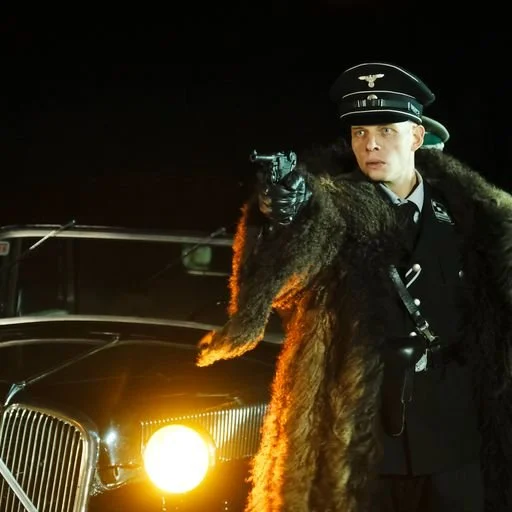TRUUS' CHILDREN - A FORGOTTEN HERO
How to define a hero? If ever the epithet meant anything then Truus Wijsmuller-Meijer fitted the bill. Who? You may well ask. She is a fully forgotten (half will not do) courageous rescuer of benighted Jews just before and even during the Second World War. Some claim (with justification) that she managed to save the lives of 10,000 victims of Nazi persecution – even a half of that, nay a tenth, would surely deserve a name to be remembered in a pantheon of modern heroes.
Yet Truus (a nickname for Geertruida) has been consigned to the erased pages of history – until now. A new film celebrating the achievements of this giant among good people has been produced in the country of Truus’ birth – the Netherlands. Combining archive footage, interviews with experts and the children saved by this brave Dutch lady, the film fluently directed by Pamela Sturhoofd and Jessica van Tijn, lays out a powerful case for raising Truus’ name to the misty peaks of fame. Following the trail of her fellow Dutch compatriot, Sturhoofd uncovers a fascinating mosaic of astonishing daring in the grimmest of days – the attempted genocide of European Jews. Few had the guts, stamina, wherewithal or sheer determination to snatch innocents – so many of the small children - from the murderous clutches of the Nazi regime. Truus, the non-Jewish wife of a Dutch bank employee, was different.
One of the many wonderful things about this documentary is that we get to hear the actual voice of Truus (she died in 1978). She tells us in disembodied Dutch (thankfully subtitled) that ‘I’m the type that when I see something, I don’t ask, I just do it.’ In the many studies of wartime rescuers there is a running theme behind the altruism – you see something wrong and you need to fix it. That was Truus all over.
Talking to Pamela, the co-director from her home in Amsterdam, it was clear to me that making this film was for her a labour of love. She has spent years putting the movie together; travelling the world to hunt down eye witnesses, long-forgotten sound and visual recordings. Where a gap could not be recovered, she decided to use animation and dramatic reconstruction. Both are done with a beautifully light touch to fill the absence of photographs or newsreel.
Truus’ many acts of rescue began in late 1930s by helping to smuggle Jewish children over the tightly guarded border between Nazi Germany and her native country. She would drive out, late at night, to a pre-arranged spot to collect the children from their traumatised parents. She would hide the children under her skirts to get past the border guards who searched her car looking for trouble. After war broke out, Truus drove lorries to the South of France to take medicines to prisoners held at a concentration camp. She arranged (somehow) for a group of Jewish children from the camp to be sent to safety in neutral Sweden.
Perhaps Truus’ most audacious act was to travel in December 1938 to Vienna, a few weeks after the devastation wrought to the Jews of Germany and Austria during Kristallnacht. There she would meet the SS official in charge of expelling Jews. He was a young career Nazi called Adolf Eichmann – later to become the organiser-in-chief of the transports to the gas chambers in occupied Poland. If Eichmann was already a figure to be feared, it cut no ice with Truus who demanded that the heartless villain release 600 children from Vienna. He agreed and most ended up on the Kindertransport to Britain.
What I have highlighted here doesn’t even come close to describing all the exploits of this indomitable Dutch saviour. The film weaves in and out of her life presenting the pieces like an ever-growing jigsaw. Poignant interviews with those whom Truus had saved (now well into their late 80s and 90s) emphasise the nick-of-time nature of this biographical film – soon all first-hand memories of this great lady will be gone. The film has rescued Truus’ name from near oblivion (although she was recognised in her own lifetime, not least by receiving the award of Righteous Among Nations given by Yad Vashem in Jerusalem). It is a story grippingly told, poetically paced and a fitting tribute to a woman described in the film as ‘a great personality that emanated goodness’. A definition of heroism? That is it.
Truus’ Children has not yet had a release date in the UK but when it does we will post it here on The Cambridge Critique. If anyone would like to screen the film, please contact Pamela Sturhoofd via the website:







